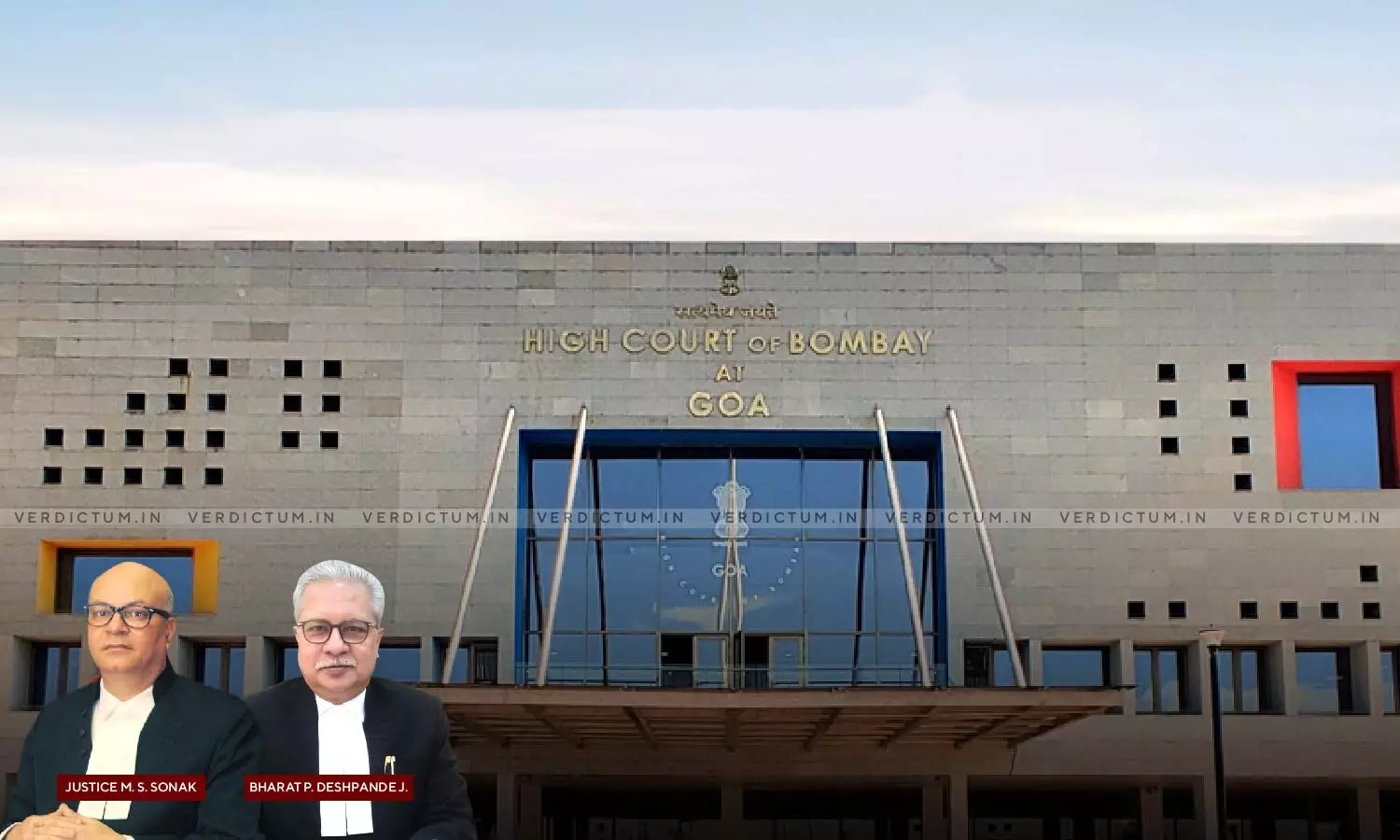
Tiger Ensures Ecological Viability Of Habitat: Bombay HC Directs To Notify Mhadei Wildlife Sanctuary As Tiger Reserve
 |
|The Bombay High Court, Goa Bench, disposed of a Public Interest Litigation seeking directions against the Respondents to notify Mhadei Wild Life Sanctuary (Mhadei) and other areas as a ‘tiger reserve’ under Chapter IV-B of the Wild Life (Protection) Act, 1972 (WLPA). The Court remarked that the tiger is a keystone species and plays a pivotal role in maintaining an ecosystem.
A Division Bench of Justice M. S. Sonak and Justice Bharat P. Deshpande noted, “India describes the tiger as a unique animal which plays a pivotal role in the health and diversity of an ecosystem…Tigers are variously described as Keystone species, Flagship species, Indicator Species or Umbrella species”. In para 20 the Court outlined, “Thus, it becomes an ecological imperative to keep the core areas of tiger reserves inviolate for the survival of source populations of tigers and other wild animals”.
Advocate Norma Alvares appeared for the Petitioner, Advocate General D. Pangam with Additional Government Advocate Maria Correia appeared for Respondents no. 1 to 4 and Central Government Standing Counsel R. Chodankar appeared for Respondents no. 5 and 6.
Since 2011, the Central Government and the National Tiger Conservation Authority (NTCA) have been urging the State of Goa to designate Mhadei and adjoining areas as a ‘tiger reserve’ under the relevant provisions of the WLPA. Despite persistent appeals, the State of Goa did not take any action. The Petitioner sought directions against the Respondents to notify Mhadei Wildlife Sanctuary and other areas as a ‘tiger reserve’ under the WLPA and requested Respondent no. 4 to establish Anti-Poaching Camps (APCs) in strategic locations within Goa's wildlife sanctuaries and national parks.
The Court ascertained four major issues: Firstly, the NTCA's communication on the Action Taken Report (ATR) and Expert Committee Report (ECR) qualified as a “recommendation” under Section 38-V(1) of the WLPA, which the Court affirmed. “Section 38-V (1) of the WLPA provides that the State Government shall, “on the recommendation of the Tiger Conservation Authority”, notify an area as a tiger reserve. Therefore, we could consider the natural meaning of the expression “recommendation”, bearing in mind the context of its setting in the statutory scheme”. Additionally, the Court stated in para 82, “... there was no statutory definition of “recommendation” in the Rules. Therefore, the meaning of the word has to be understood in the context of the provisions of the Rules and the object behind such Rules”.
Secondly, the Court held that Section 38-V (1) of the WLPA, which required the State Government to notify an area as a tiger reserve based on the NTCA's recommendation, was indeed a mandatory provision. The Court maintained, “In Anant H. Ulahalkar & Anr v/s. Chief Election Commissioner & Ors., the Full Bench of this Court, considered in some detail the tests to determine whether a legislative provision is mandatory or directory. The use of expressions like “shall” or “may” are not conclusive, and regard must be had to the true intent of the legislation”.
The Bench observed, “Therefore, to hold that Section 38-V (1) is only a directory so that the State Government can brush aside the recommendation of the NTCA would be contrary to the language and phraseology of the provision, the intention of the Legislature and the nature, design and consequences which would follow from construing the same as directory”.
Thirdly, the Court clarified that the State Government cannot refuse or unreasonably delay the notification of the tiger reserve due to the non-settlement of rights and claims of forest dwellers, and issuing the final notification under Section 26-A of the WLPA, which was not a mandatory requirement for declaring a protected area as a tiger reserve.
“Therefore, when it comes to determining and settling the rights and claims of the various dwellers, the State of Goa has defaulted in compliance with the time schedule prescribed under the WLPA. Further, the State of Goa, in defiance of directions of the Hon'ble Supreme Court dated 22.08.1997, has failed to determine and settle the rights of forest dwellers”, the Bench asserted.
Fourthly, the Court noted that there are no statutory procedural restrictions on notifying a tiger reserve, and the NTCA does not need to invite a proposal from the State Government before recommending a tiger reserve.
In this context, the Court stated, “The provisions of Chapter IV- B of WLPA do not expressly contemplate the invitation of the proposal from the State before any recommendation can be made or directions issued to notify a tiger reserve. The vague practice or undefined procedure referred to by the learned AG would have to yield to the provisions in Chapter IV-B of WLPA. Therefore, even assuming that there is any procedure or practice, the same cannot indeed operate as a fetter to the NTCA recommending the State Government to notify a tiger reserve”.
Accordingly, the Court disposed of the Petition, directing the NTCA to assist the State Government in expediting the process. The Court issued specific directions to the State Government, which included notifying Mhadei and other referred areas as a 'tiger reserve' under Section 38-V (1) of the WLPA. Additionally, the State Government was instructed to develop a comprehensive tiger conservation plan, establish ACPs at strategic locations staffed by forest guards and watchers, ensure no encroachments occur in the protected forest areas, and prioritize the determination and settlement of rights and claims of Scheduled Tribes and other forest dwellers.
Cause Title: The Goa Foundation v. State of Goa
Click here to read/download Judgment